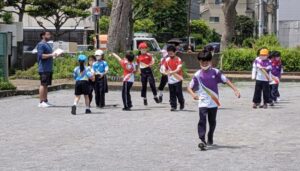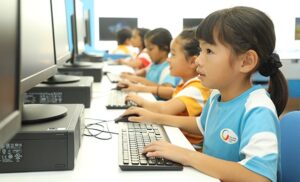In present-day society, personality and the ability to communicate with others become the most significant factors in shaping the academic career and later professional life of the student. These give the student the possibility to speak out, make contacts and work in a team with other students and with the teachers.
Regardless of whether one attends an international school in Tokyo or any other global institution, it is crucial to master interpersonal skills for students to flourish in social and work environments.
In this article, we will discuss the importance of interpersonal skills, the various types of interpersonal skills and how students can acquire them as well as activities that may boost these skills.
An Overview of Interpersonal Skills
Interpersonal skills are vital for students because they affect all areas of an individual’s life. In this case, the academic context suggests that students should be able to communicate with the instructor and their fellow pupils.
If there is coordinated interaction in the classroom in terms of group work as well as in the presentation of students’ ideas, such relations would require high interpersonal skills to enable the students to articulate their points effectively without fear. Also, these are important when it comes to coaching and nurturing leadership, understanding, and emotional intelligence which are of interest in everyday life situations and in work.
Why Interpersonal Skills Matter for Students
Interpersonal skills are essential for students because they impact every aspect of life. In addition to cost restraint, these skills facilitate the establishment of a conducive and interactive environment where students relate and learn from each other and foster long-term memories.
Importance of Interpersonal Skills for Students
The relevance of interpersonal skills for students is beyond reproach and cannot be diminished in any way. They are indispensable for performing well in academics, stimulating social relationships, and for prospects that lie in careers. To exemplify, in a typical IGCSE curriculum, students are required to do group work or make presentations.
Hence, there is a lot of communication and working together or integration. Furthermore, interpersonal skills foster a sense of belonging and help students constructively manage conflicts.
Types of Interpersonal Skills
Here are 9 types of interpersonal skills, which students at institutions like GIIS may develop through various school programs and activities:
1. Communication Skills
The ability to clearly express ideas, thoughts, and emotions is fundamental in fostering effective relationships, both in academic and social settings. Students practice these skills through group projects, presentations, and daily interactions.
2. Empathy
Understanding and sharing the feelings of others is crucial in building strong, supportive relationships. Activities like team sports, peer mentoring, and community service allow students to develop empathy.
3. Active Listening
Paying full attention to the speaker, understanding their message, and responding thoughtfully are core interpersonal skills. Classroom discussions, debate clubs, and group work enhance active listening abilities in students.
4. Teamwork
Collaborating with others to achieve a common goal requires strong interpersonal skills. GIIS encourages teamwork through various extracurricular activities, such as sports teams, group projects, and student leadership programs.
5. Conflict Resolution
The ability to navigate and resolve conflicts peacefully and constructively is essential. Students develop this skill through group activities, classroom interactions, and leadership roles.
6. Adaptability
Being flexible and open to change is a key interpersonal skill, especially in a diverse international school environment. Participation in different school programs helps students become more adaptable.
7. Leadership
Leadership skills involve guiding, motivating, and managing others to achieve a shared objective. GIIS provides opportunities for students to take on leadership roles, such as student council or club leadership.
8. Negotiation
Negotiating involves finding mutually beneficial solutions and compromises. This skill is often honed during classroom discussions, debates, and collaborative problem-solving tasks.
9. Emotional Intelligence
The ability to manage and understand one’s own emotions, as well as those of others, is a critical interpersonal skill. Emotional intelligence is nurtured through social interactions, mindfulness programs, and emotional well-being activities at school.
How to Develop Interpersonal Skills
The acquisition of interpersonal skills is a gradual process that requires practice, self-awareness, and input from others. Some ways students can improve on this in their daily activities include:
1. Taking Part In Group Work
When in school, students often engage in such activities as group projects or various forms of extra-curricular activities. In these activities, students themselves learn how to work with each other, communicate, and take leadership roles. Such experiences allow learning how to work and think together, while also dealing with opposing views.
2. Working on Active Listening
Active listening can be defined as a listening style that is used with a focus on the speaker. Students must be able to hold on to all that other people are saying, without cutting in. This has a very positive impact which helps in creating relationships based on trust and building healthy interactions.
3. Seeking Feedback
Regular feedback from teachers, peers, or mentors can help students identify areas where they can improve their interpersonal skills. Constructive criticism allows them to reflect on their behaviour and make necessary adjustments.
4. Role-playing Exercises
Role-playing scenarios in which students practice resolving conflicts or working in teams can significantly enhance their interpersonal skills. These exercises enable students to think outside the box and take on managerial roles without any risks.
5. Being a Team Player
A student can learn to be one when he or she can ‘wear someone else’s shoes’ and feel how that someone feels and sees things. This can be done by giving them different tasks that require explanation, listening to narration, or helping out in the community. This practice can be encouraged through group discussions, storytelling, or community service activities.
Benefits of Interpersonal Skills for Students
Interpersonal skills offer numerous benefits for students. Below are some important benefits of these skills:
1. Heightened Clarity of Expression
Social skills develop a student’s capacity to articulate thoughts, intentions, and feelings, both verbal and visual, in a clear, coherent, and confident manner.
2. Better Collaboration
With sound communication skills, students work more effectively and can achieve group objectives.
3. Increased Opportunities for Exercising Leadership
The development of social skills creates leaders out of students, capable of pulling and pushing other people towards accomplishment.
4. Conflict Resolution
Students with strong interpersonal skills can navigate conflicts calmly and find solutions that benefit everyone involved.
5. Emotional Intelligence
Interpersonal skills lead to increased emotional quotient as students learn the art of controlling their emotions and how to feel for others.
6. Greater Academic Success
Interpersonal skills improve classroom participation, group project performance, and overall academic achievement.
7. Social Adaptability
Students can easily adjust to changing social environments, either in classrooms or elsewhere, due to their developed interpersonal skills.
Interpersonal Skills Activities for Students
At the Global Indian International School (GIIS), various activities are incorporated to help students develop interpersonal skills.
1. Group Projects
Involving students in group projects helps them practice teamwork, communication, and problem-solving. These projects teach students how to collaborate with their peers and share responsibilities effectively.
2. Peer Learning Sessions
Peer learning encourages students to teach and learn from one another, enhancing communication skills and promoting empathy. It also enables students to engage in active listening and appreciate others’ viewpoints.
3. Leadership Programs
GIIS offers leadership development programs where students can take on roles such as class representatives or project leaders. Such experiences enhance leadership qualities, building trust and enhancing confidence.
4. Community Service Initiatives
Participating in community service allows students to practice empathy and develop a sense of responsibility toward others. These initiatives teach students the value of teamwork and giving back to society.
5. Role-Playing Exercises
Role-playing different scenarios, such as resolving a conflict or leading a team, helps students practice real-life interpersonal skills in a controlled environment.
Conclusion
The importance of interpersonal skills for students lies in the fact that these skills determine the nature of interaction, communication and collaboration with other people. Be it communication, empathy or leadership, these aptitudes are vital in achieving academic or even personal goals.
Developing interpersonal skills in students not only prepares them for future careers but also helps them navigate social interactions with confidence and empathy. Whether through school activities, peer interactions, or personal development efforts, the continuous practice of interpersonal skills will contribute to students’ growth as well-rounded individuals in today’s global society.




























